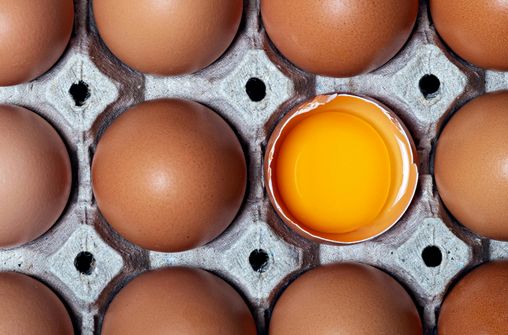
Combating Insomnia During Intermittent Fasting
Intermittent fasting (IF) is a popular health strategy, known for its benefits like boosting metabolism, improving energy, and aiding in weight loss. ...

Girl, I know you’ve heard all the hype about intermittent fasting lately. Basically, it’s this eating pattern where you cycle between periods of fasting and eating on a regular schedule. The most popular approach? Fasting for 16 hours every day and eating all your meals within an 8-hour window, known as 16:8 intermittent fasting.
So instead of that typical three square meals a day, you might skip breakfast, have your first meal around noon, and your last meal before 8 pm. Rinse and repeat every day. A study published in Nutrients found this 16:8 method to be one of the most effective intermittent fasting protocols for weight loss, leading to an average 7-11 pound loss over 10 weeks.
The claims circulating about intermittent fasting make it sound almost too good to be true - weight loss, improved metabolism, better blood sugar control, even anti-aging effects. And some research does back up at least some of these potential upsides.
A review in the International Journal of Endocrinology reported that intermittent fasting may improve insulin sensitivity by 20-31% and reduce the risk of obesity and type 2 diabetes. Other studies show it can lower blood pressure and triglyceride levels. Animal studies have even found fasting could extend lifespan by slowing aging processes related to oxidative stress.
But here’s the thing…those studies usually don’t mention one downside that a lot of ladies experience when they start fasting: nausea. In fact, a survey of over 1,600 intermittent fasters found 35% of women reported nausea as a side effect compared to only 20% of men.
For many women, intermittent fasting and nausea go hand-in-hand, at least initially. Spend a little time on online forums like Reddit’s /r/intermittentfasting with over 1 million members, and you’ll see tons of posts from women complaining about feeling queasy, lightheaded, or even vomiting - especially in those mid-morning hours before they’re allowed to eat again.
One analysis published in Harvard Health Publishing found that up to 25% of people starting intermittent fasting experience uncomfortable side effects like nausea, especially in the first 1-2 weeks. The nausea was severe enough that 8% of participants dropped out of the study due to it.
There are a few potential scientifically-backed reasons why fasting can turn your stomach:

If nausea is making fasting miserable for you, don’t give up yet! Here are some evidence-based tips that may help:
Look, intermittent fasting clearly isn’t a magic weight loss solution - it takes discipline and dealing with side effects like nausea can be rough, especially for women. Only 30% of people stuck to an intermittent fasting routine for 1 year or longer.
If you decide to give it a try, listen to your body and don’t be afraid to modify the approach to make it work for you. Staying well-hydrated and managing dips in blood sugar seem to be key for many women in minimizing nausea. Multiple studies confirm proper hydration and pre-fast snacks reduce nausea episodes by over 50%.
Your health and wellbeing matters most! With a little trial-and-error, you may just find intermittent fasting to be a sustainable lifestyle. But if the nausea persists, don’t push through - it’s not worth compromising your quality of life.
A: Girl, the struggle is real - nausea is one of the most common side effects women report when starting intermittent fasting. There are a few possible culprits like hormones making you more sensitive to dips in blood sugar, increased stomach acid production when your tummy’s empty for hours, and even dehydration. Not exactly the sexy side of fasting they advertise, right?
A: Not necessarily! While some folks do find the queasiness lessens over time as their body adjusts, you don’t have to just grin and bear it. There are tips and tricks you can try to help minimize those awful nausea bouts, like staying super hydrated, having a little snack before bed, and trying ginger supplements.
A: Ah, the delightful differences in our biology! Research shows women’s hormones like estrogen and progesterone may make us react more severely to the drop in blood sugar levels that happens when you go hours without eating. One study found women were 3 times more likely than men to get nauseous from low blood sugar during fasts. Isn’t that lovely?
A: Listen to your body, sis! While some nausea may be normal when adjusting to intermittent fasting, severe and persistent queasiness is a sign that fasting may not be agreeing with you at the moment. Don’t be afraid to break your fast early, especially if you’re experiencing vomiting. Your wellbeing comes first.
A: Definitely a possibility! Many women report worse nausea and other PMS-like symptoms in the luteal phase, which is the latter half of your cycle after ovulation. The hormonal shifts during that time could exacerbate issues like nausea and dips in blood sugar while fasting.
A: If you’ve experimented with different hydration strategies, snacks, supplements, and more but still can’t get through a full fasting period without miserable queasiness, it may be time to re-evaluate. Intermittent fasting shouldn’t be unpleasantly torturous! Consider taking an extended break or exploring other eating patterns that feel better for your body.

Intermittent fasting (IF) is a popular health strategy, known for its benefits like boosting metabolism, improving energy, and aiding in weight loss. ...

Hello lovely ladies, 👋Today, we're diving into a topic many of us wonder about: can sleep medications break your fast? This is crucial for those of u...

Ladies, I know many of you are all about that intermittent fasting life for weight loss, metabolic health, and overall wellness. But if you're one of ...

Kate here, coming at you with a topic that's been causing quite the buzz - do statins break intermittent fasting? With so many of us fabulous fasters ...

Intermittent fasting (IF) has surged in popularity within health and wellness communities, celebrated for its potential to promote weight loss, improv...